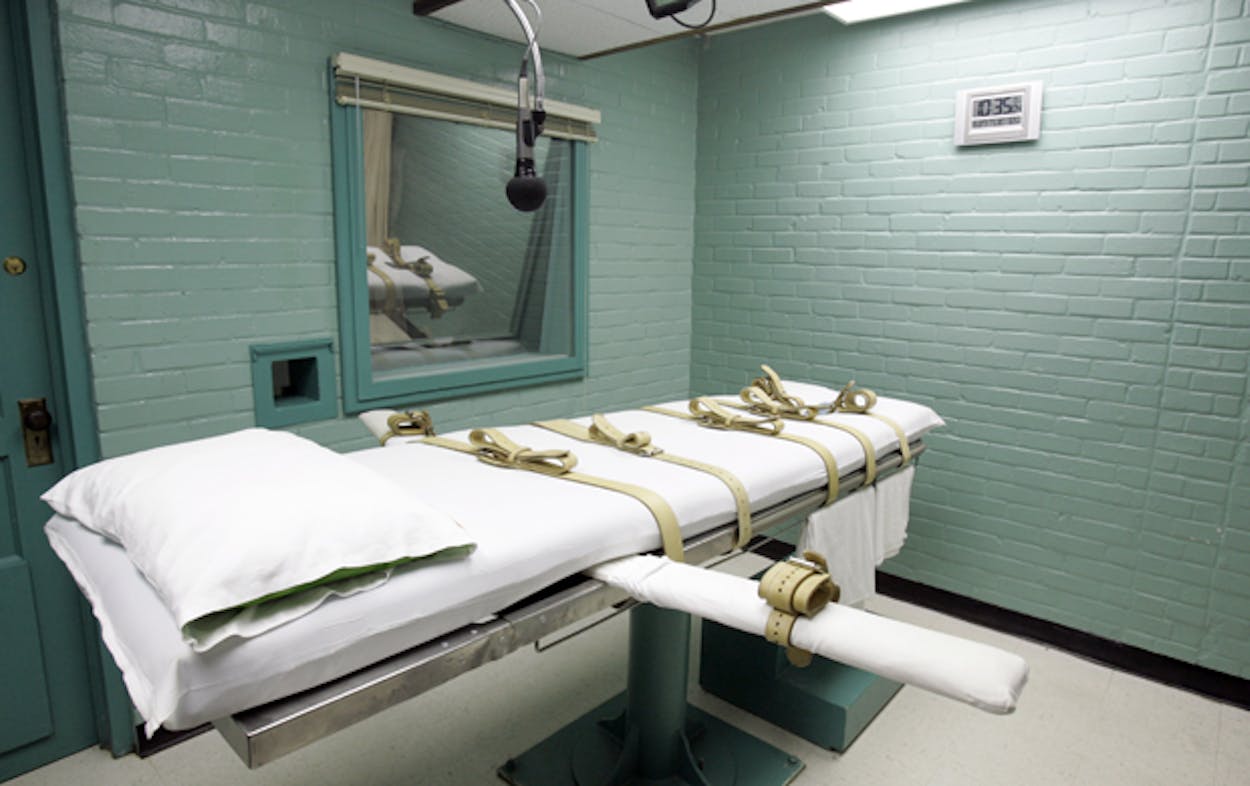Texas executed Mario Swain Thursday night for the 2002 murder of 44-year-old Longview resident Lola Nixon. DNA linked Swain to several other attacks on women, leading a prosecutor to dub him “a serial killer in training,” according to the Associated Press’s Michael Graczyk.
According to prosecutors, Nixon walked in on Swain, then 23, burglarizing her house on the evening of December 27, 2002. He reportedly beat her with a tire iron and stabbed her repeatedly with a knife.
After assaulting her, Swain then put Nixon in the trunk of her BMW and drove to an isolated area in nearby Lakeport, where he put her in an abandoned car. Swain confessed that Nixon was still breathing, but barely conscious, when he left her, Jordan Smith wrote in the Austin Chronicle. Swain then returned to Nixon’s home to clean up the evidence and take valuables. Swain later used Nixon’s credit cards and gave a piece of her jewelry to a friend, according to Graczyk.
After she failed to show up for a dinner the following day, police officers were sent to her home where they discovered signs of a struggle, including bloody walls and furniture throughout Nixon’s ransacked house, Glenn Evans wrote in the Longview-News Journal. A description a neighbor gave of an unfamiliar truck that had been parked on the street led police to Swain.
Lance Larison, a prosecutor at Swain’s 2004 trial, implied that Swain’s knowledge of the abandoned car where he left Nixon was proof of premeditation. “Unless you knew where you were going, you wouldn’t get there,” said Larison.
At his trial, prosecutors provided evidence that showed Swain had a pattern of stalking and assaulting women. DNA evidence tied Swain to Nixon’s murder and to attacks on several other women beginning in 1999, Evans wrote. In at least two instances he had gathered information on a woman, stalked them, and then forced them to inhale the anesthetic halothane before hitting them over the head or shooting them with a stun gun.
Some believed Swain’s pattern of criminal behavior would inevitably escalate. At the time of the trial, Russell Potts, an investigator for the District Attorney’s Office, told the DA that “we caught a serial killer on his first murder,” according to Evans.
Swain appealed his conviction on the grounds that his statements should not have been permitted at trial because the police did not read him his rights until after he confessed. The Texas Court of Criminal Appeals and the 5th U.S. Circuit Court of Appeals both denied his claim. The U.S. Supreme Court declined to review the case three weeks ago.
Swain declined to give a final statement and he was pronounced dead at at 6:39 p.m., thirty minutes after the lethal injection began, Graczyk reported. No family members of the killer or the victim were present to witness his execution.
Swain was the thirteenth man to be executed in Texas in 2012. Texas’s two final executions of 2012 are scheduled on Wednesday and Thursday of next week.






